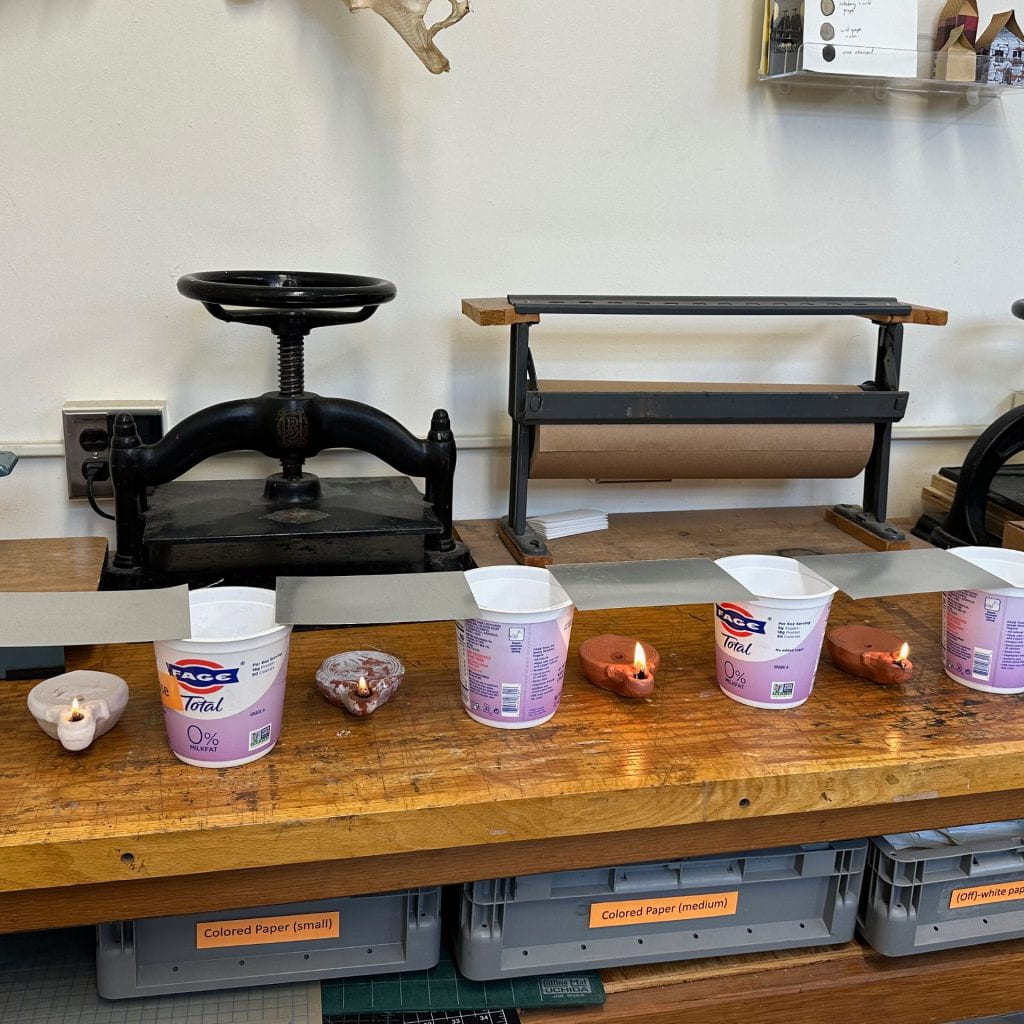In connection with our study of some of the earliest Latin manuscripts on papyrus and parchment, we took a class to try our hands at two different hands: rustic capitals and old Roman cursive. The night before, our ink-making team got to work, mixing lamp black, gum arabic, and water in mortars and pestles, and preparing a small jar of ink for each student in the class.

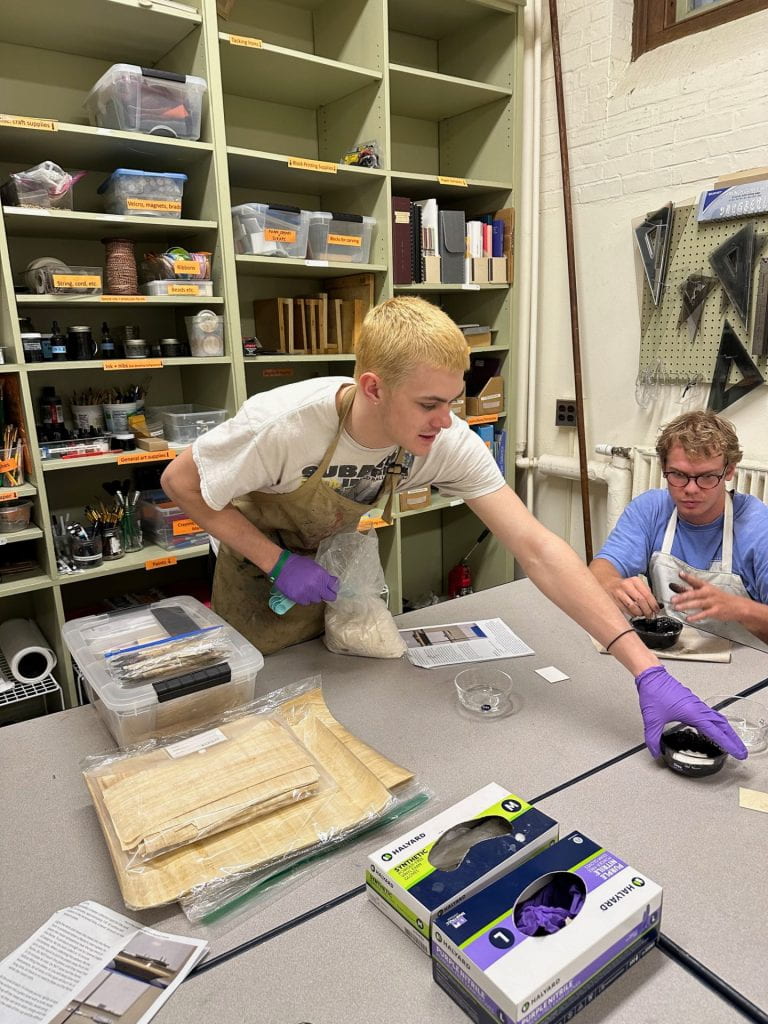
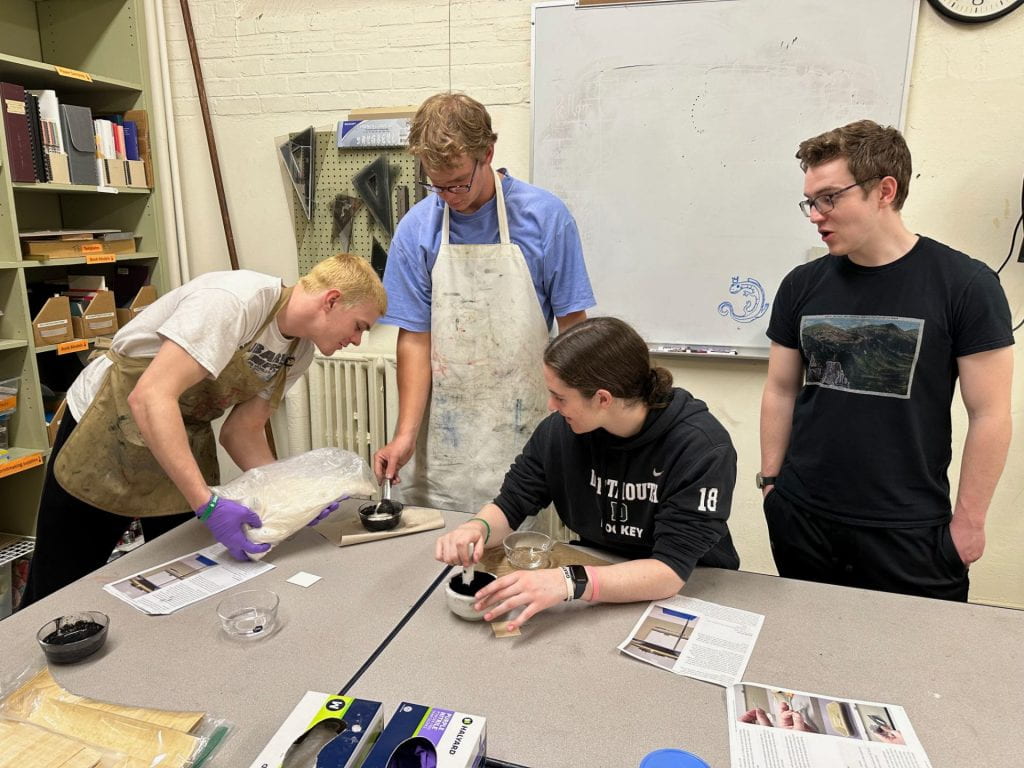
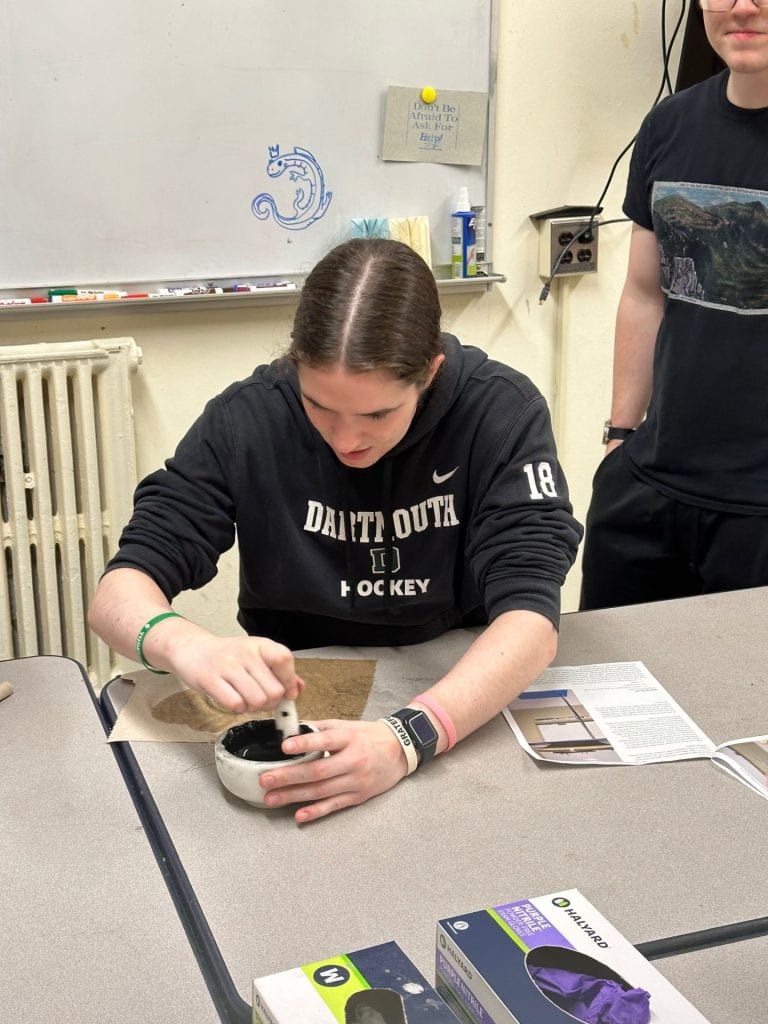
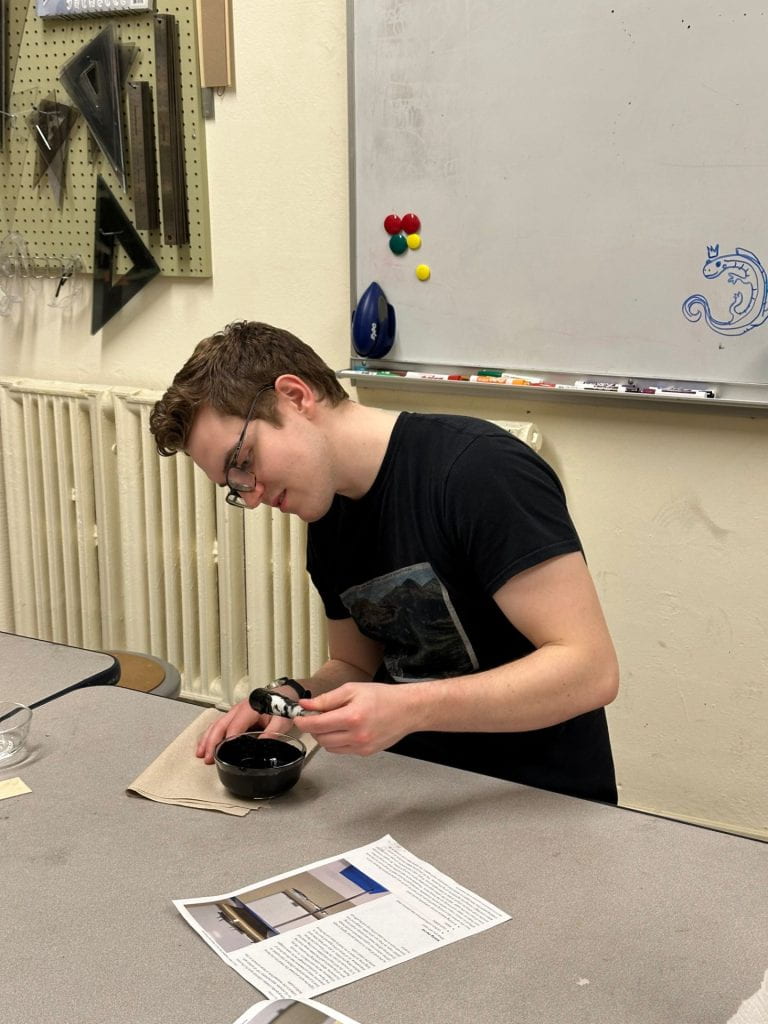
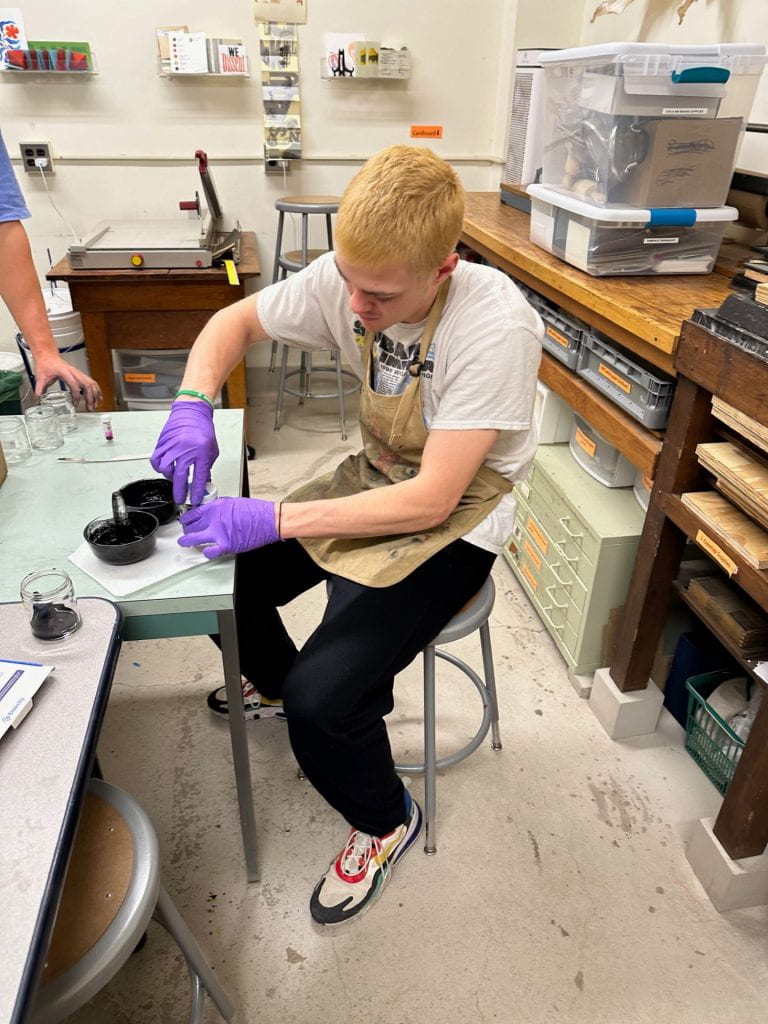
During class, each student used our new ink, reed pens, and papyrus to make a copy either of a 1st-century BCE fragment of the poetry of Gallus written in rustic capitals, P. Qaṣr Ibrîm 78-3-11/1, or a second-century fragment on Servius Tullius written in old roman cursive, P. Oxy. 2088.
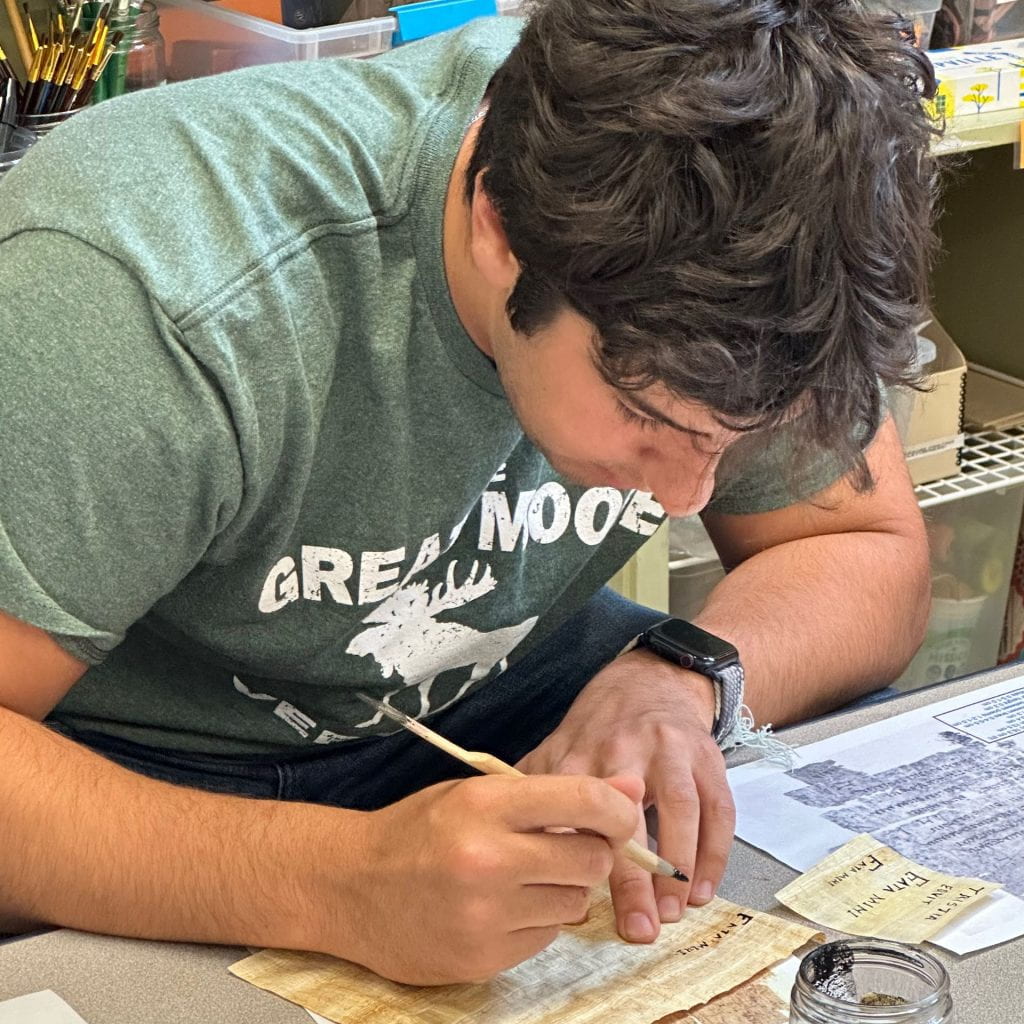
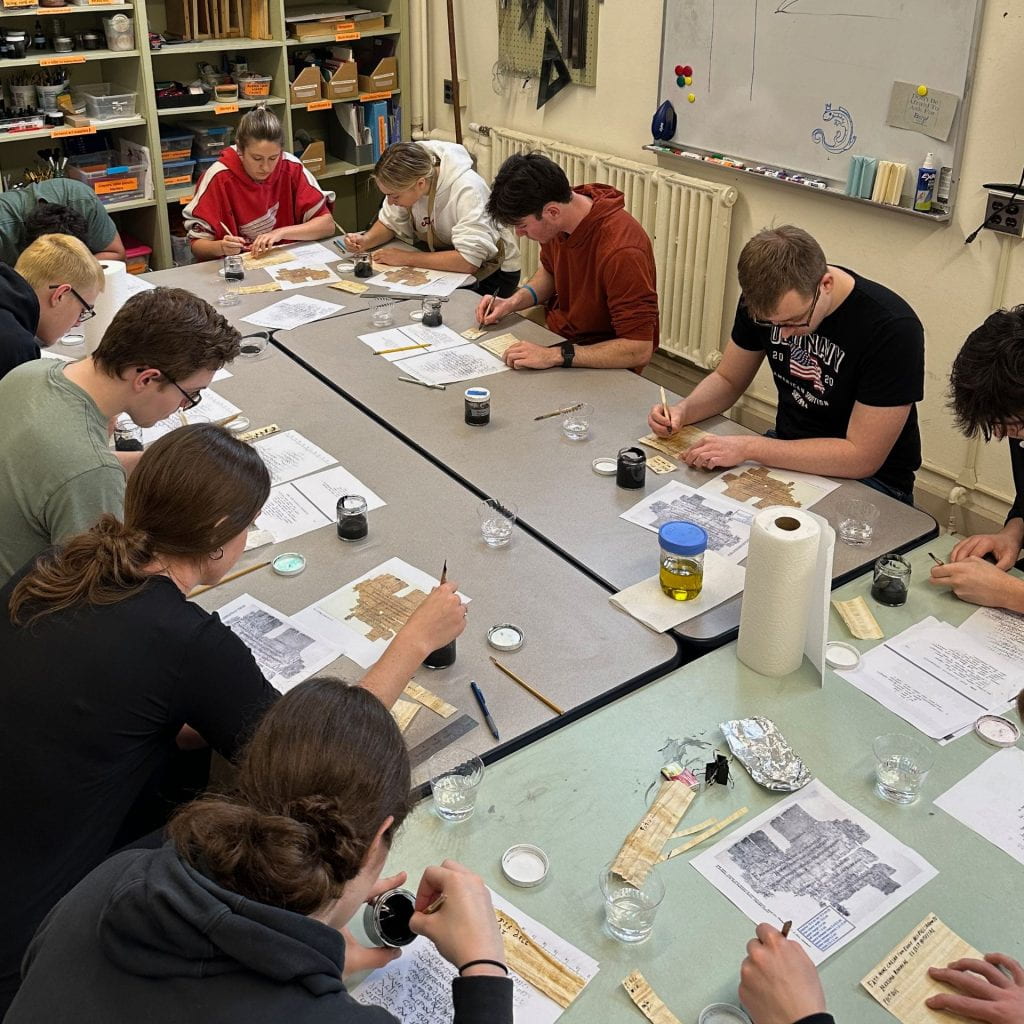
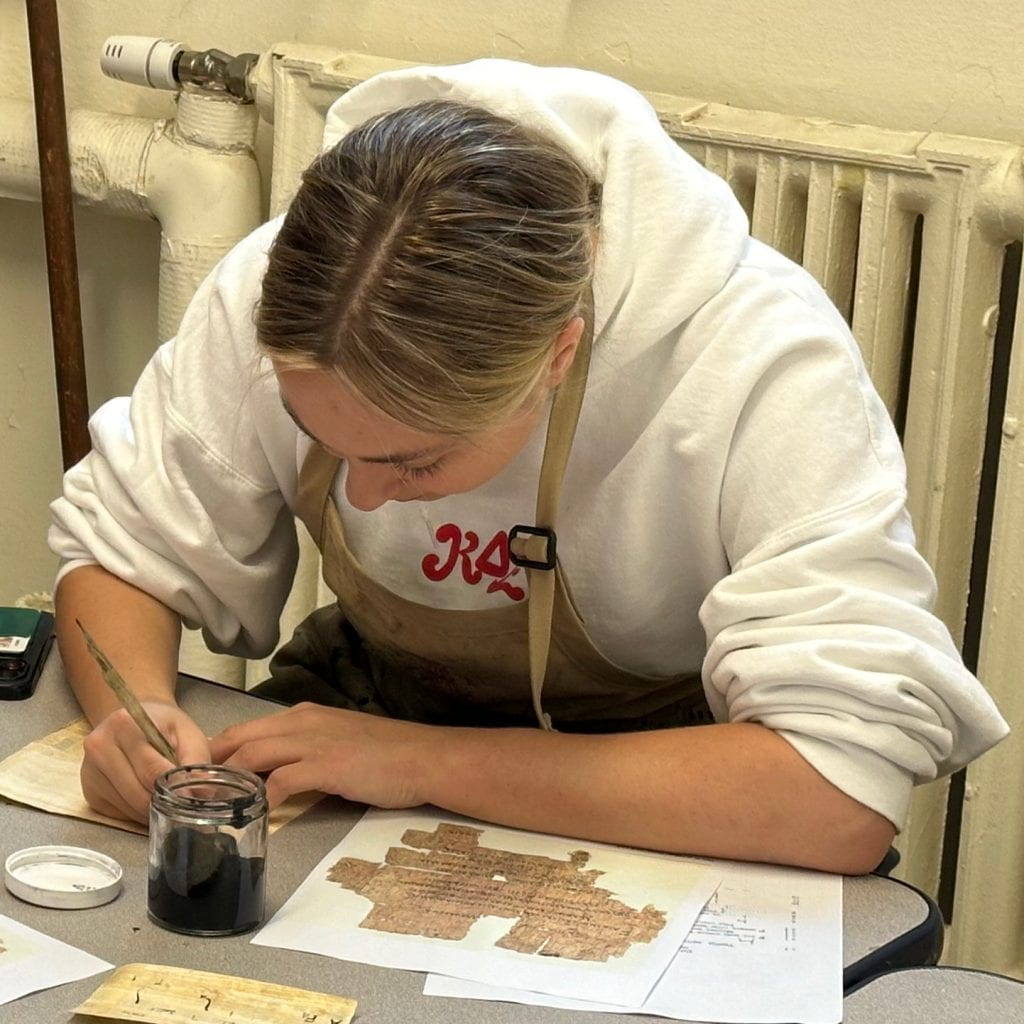
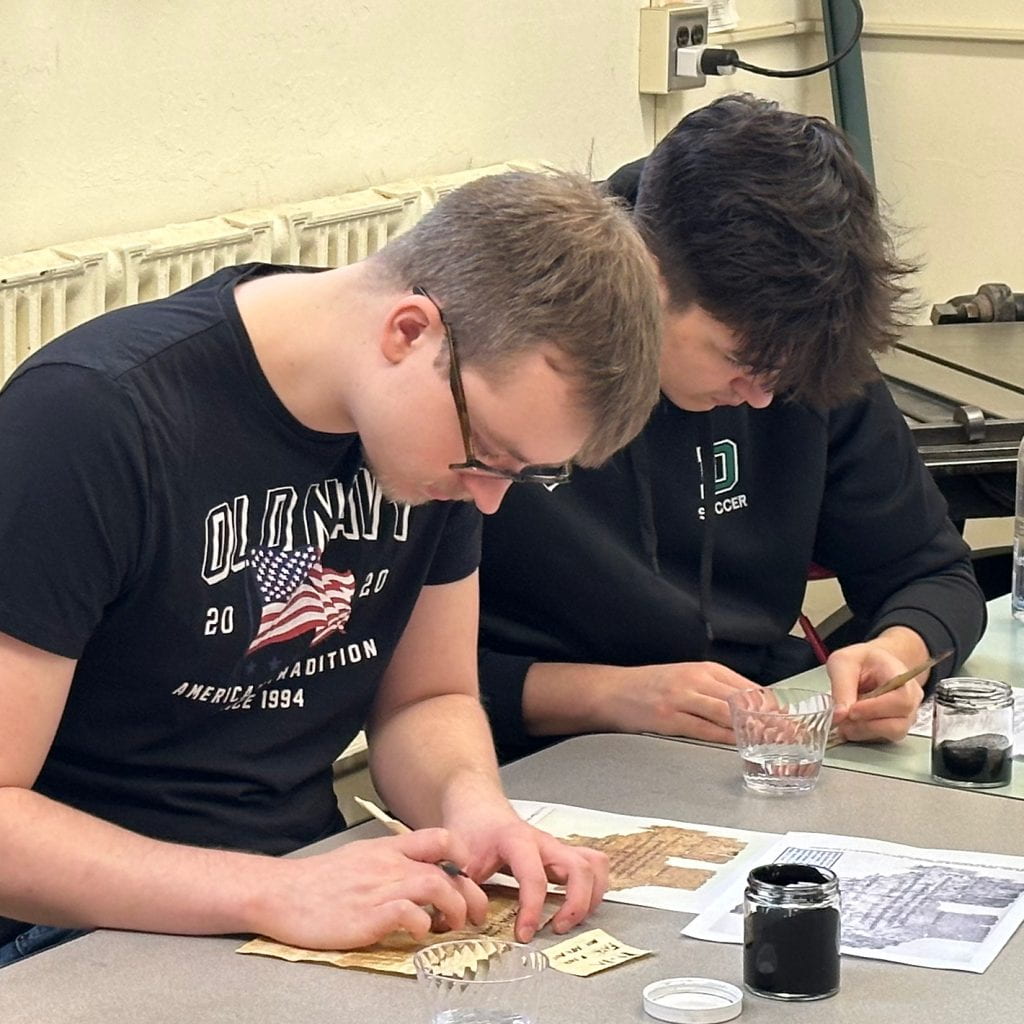
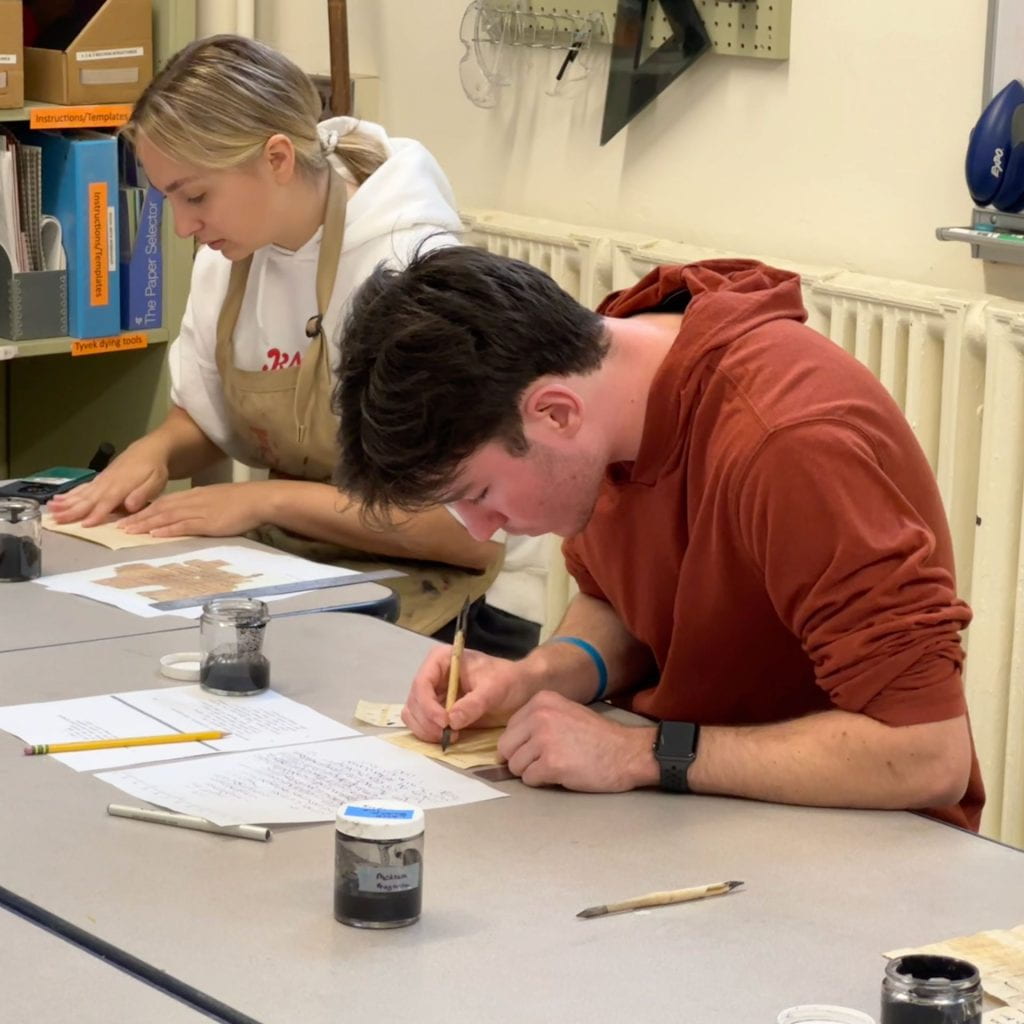
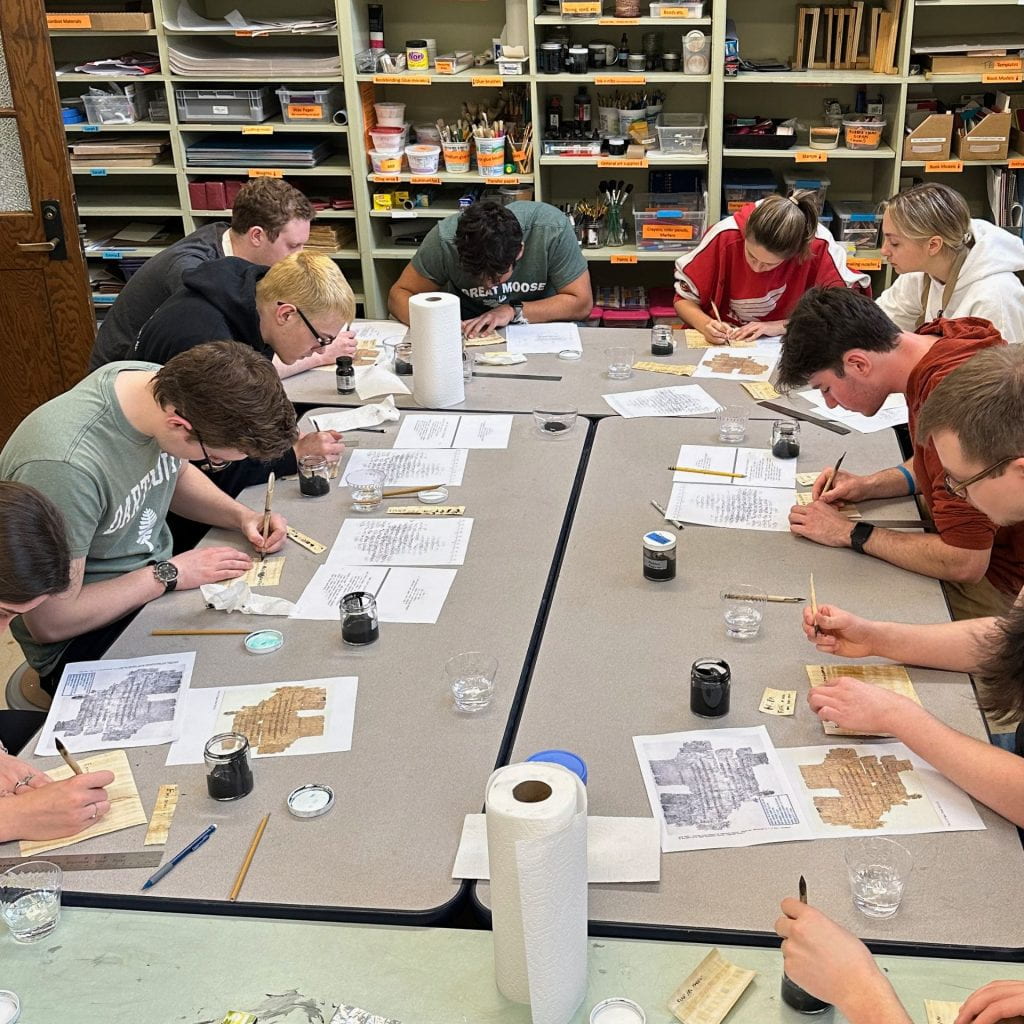
The results were impressive:
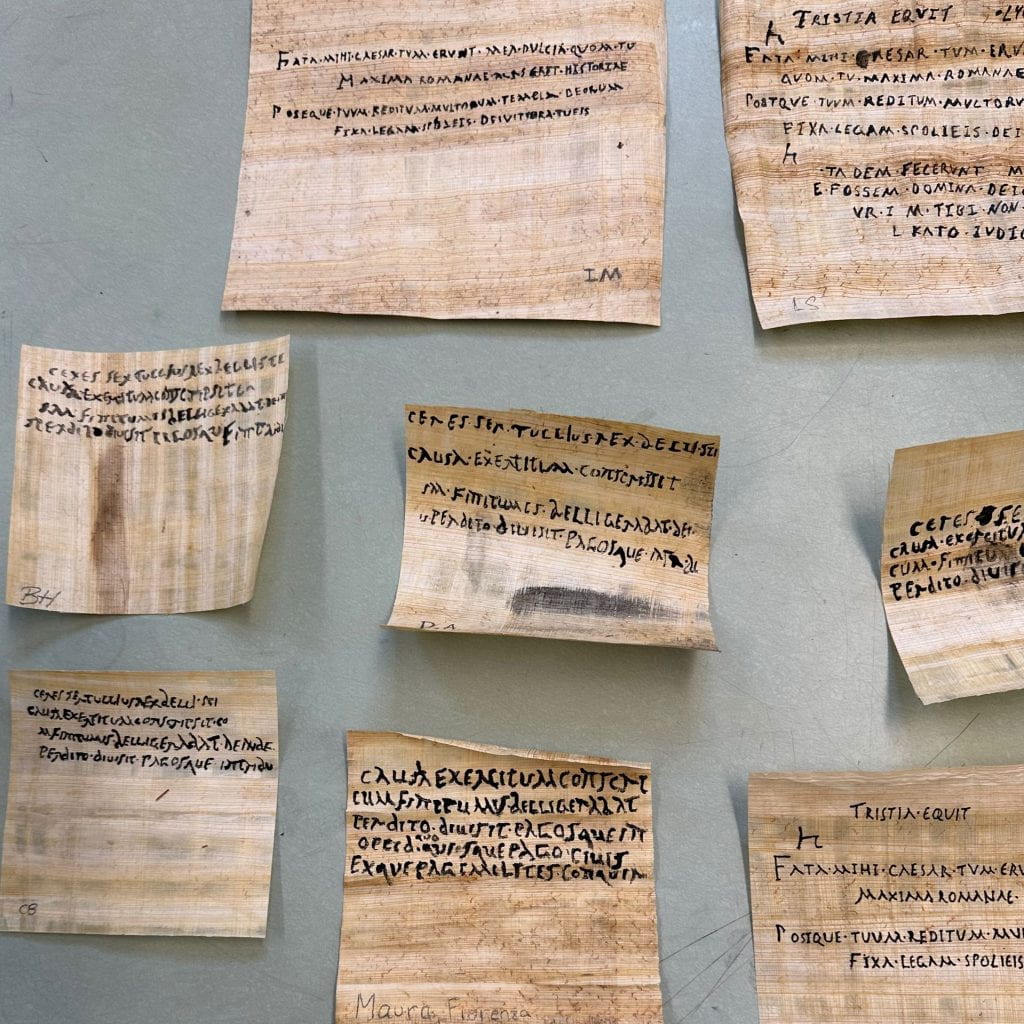
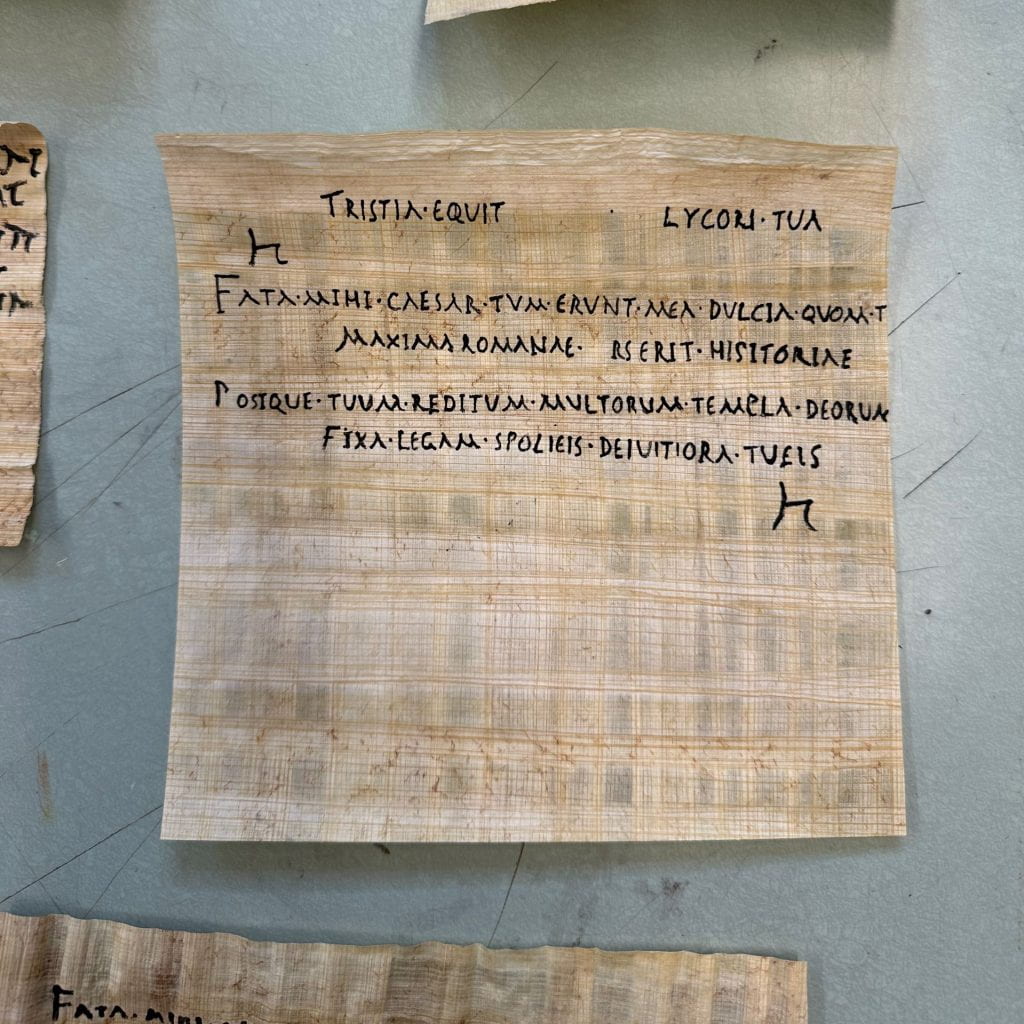
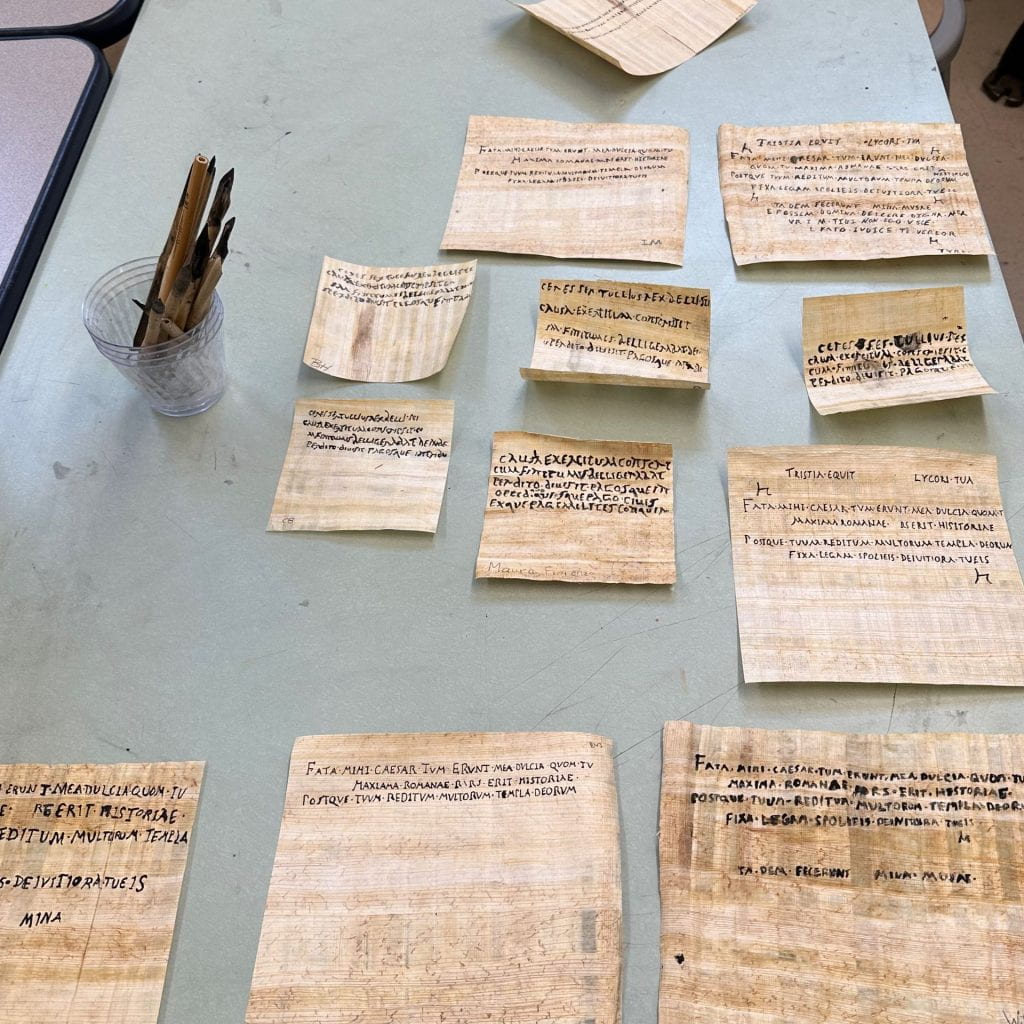
We came away with a new respect for the skills of ancient scribes…now the old Roman cursive of P. Oxy. 2088 looks a lot better to us than it did when we were trying to read it earlier in the week. We also came away with a new appreciation for Kremer Pigmente, who supplied us with lamp black powder; just as a experiment, we tried to produce our own, and discovered that it’s a slow process….
